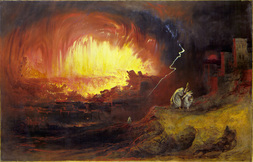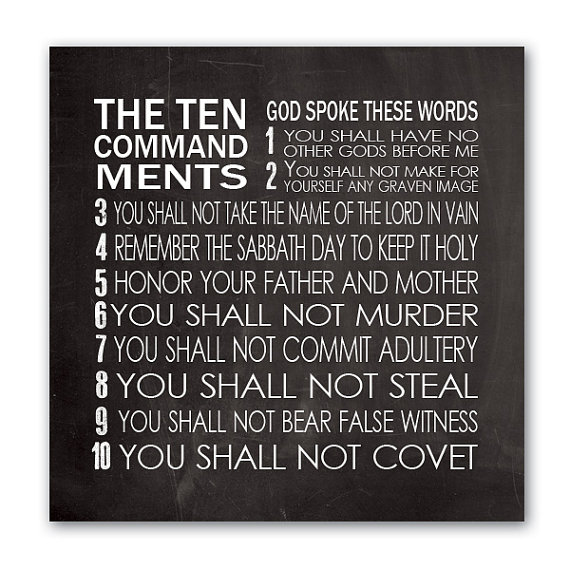So why are they so special? They represent a summary of the Law of God, traditionally believed to have been given to Moses directly on Mt. Sinai. The Pentateuch (the first five books of the bible) of course contains a huge number of Mizvot (laws) for people to obey; 603 commandments. But the Ten are special: They concern matters that are fundamental to theological certainty and an ordered society. They are not a detailed as other rules in the Torah as they do not specify the punishment to given for breaking them and seem to be intended as universally applicable, regardless of time, place or situation; in this way they are absolutist (http://awgford.weebly.com/blog/category/absolutism). Their centrality is affirmed by that fact that in Exodus 31:18 they are said to have been “written with the finger of God” onto stone tablets that Moses then took to the Jewish people.
 Sodom and Gomorrah: Evidence of God's Hypocrisy?
Sodom and Gomorrah: Evidence of God's Hypocrisy? The commandment is instead an imperative against unlawful killing that would result in bloodguilt – the killing of the innocent and defenceless. In reality there are many cases of justified killing sanctioned in the Torah.
In the very next chapter of Exodus, straight after the Ten Commandments are given, it states “Anyone who strikes a person with a fatal blow is to be put to death” (Ex. 21: 12). It is therefore very clear that the commandment cannot be seen as an absolute. There are numerous other justified killing scenarios set out including killing in warfare, in response to crime and when an intruder enters your home. If it is so obvious that the commandment “Thou Shalt not Kill” is not an absolute why do so many people believe that it is?
Perhaps it is easier to explain it in these terms to our children when they are growing up? Perhaps people want the answers to be simple and straight forward and this is why absolutism appeals?







 RSS Feed
RSS Feed
